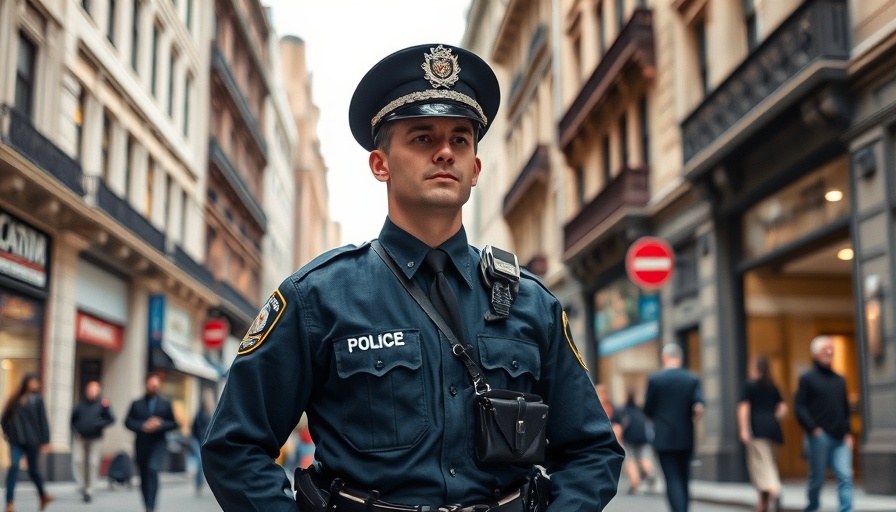
Reflecting on July 7: A Day That Changed Everything
On the morning of July 7, 2005, a tragic series of suicide bombings rocked London, altering the city's landscape forever. The devastation resulted in 52 innocent lives lost and hundreds injured, but it was not just the victims who endured trauma. First responders faced the harrowing reality of the aftermath—a challenge that would leave a lasting imprint on their lives. As we approach the 20th anniversary, their stories remind us of the human cost of such tragedies and the resilient spirit that emerges in the face of horror.
Personal Accounts from First Responders
Superintendent Anna Bearman, who was only 23 years old at the time, vividly recalls the gut-wrenching moment when she realized this incident was no mere fire, but a coordinated and lethal attack. "On July 7, it was a nice summer's morning, and we had just won the bid for the London Olympics," she shared. As she and her colleagues navigated their way to the scene, the gravity of the situation unfolded before them. Upon arriving, chaos enveloped them—people spilling onto the streets, bloodied and in shock, seeking help. Their task was daunting: to assist those who could not escape on their own.
Dr. Peter Holden, who was not supposed to be in London that day, found himself in the vicinity of one of the explosions. His training for major incidents proved critical as he provided assistance amidst the screams and confusion. The mounting tension hit suburbia like a bolt, reminding us that tragedy can strike anywhere, even on what begins as an ordinary day. "It was a situation where you could feel the underlying panic," he recalled. The serene summer transitioned into a nightmarish scene, shaping both his and Bearman's perspectives on their roles as first responders.
The Legacy of Trauma and Resilience
Bearman's recollections highlight a vital lesson about the mental and emotional toll such events exact on those involved. In the years since that fateful day, many first responders have struggled with the haunting memories, calling for greater awareness of mental health support within emergency services. Their courageous acts on July 7 stand as a testament to the dedication of these individuals, embodying resilience even in the darkest times.
As homeowners and community members in London, it's essential to acknowledge these stories—not just as historical accounts but as reminders of our collective responsibility to support those who serve and protect us. Building a community goes beyond simple living; it's about fostering an environment that honors and remembers the sacrifices made by first responders.
20 Years Later: Lessons Learned and Future Perspectives
As the 20-year memorial approaches, it's crucial to reflect on what has been learned. In addition to recognizing those lost, communities across London and beyond are engaging in dialogues about preparedness, community resilience, and how safety protocols have evolved since 2005. Local organizations are offering workshops on emergency preparedness, emphasizing proactive measures that empower citizens to respond effectively should unforeseen emergencies occur.
Moreover, the effects of these events extend into the realm of mental wellness. Initiatives supporting not only first responders but also community members affected by trauma underline the importance of healing together. This communal effort encourages conversations about mental health and well-being, fostering a more empathetic local culture.
Recognizing Vulnerability in Our Communities
In light of these historical events, the importance of community vigilance and collective resilience cannot be understated. By creating ecosystems of support through local initiatives, workshops, and social platforms, we'll not only honor those who had suffered but also empower ourselves in the face of future challenges.
Moving Forward with Hope
As we commemorate the 20th anniversary of the July 7 bombings, let us collectively vow to continue these vital conversations. It's a chance to remember, to honor, and ultimately to support one another in building a safer, more resilient London. Whether through local spotlights highlighting community efforts or engaging with first responders' stories, we can honor their legacy. We must strive for a future that appreciates the sacrifices of past heroes.
Join your neighbors today and contribute to creating a more supportive environment for all. Engagement at every level—not just emergency responders but all community members and homeowners—can help weave a strong fabric of resilience and understanding.
 Add Row
Add Row  Add
Add 




Write A Comment